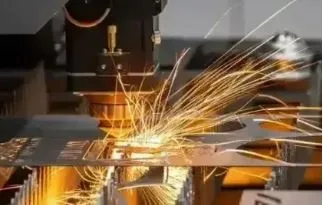Simple Maintenance Habits That Keep Air and Water Flowing Smoothly
Home comfort isn’t something most people think about until it’s gone. You notice it when the air feels stuffy or the shower pressure drops for no reason. Both your HVAC and plumbing systems work every day to keep your home comfortable, yet they’re often overlooked until there’s a problem. Small issues—like a clogged filter or a minor leak—can quietly build up and lead to bigger repairs or wasted energy.
Keeping air and water flowing smoothly doesn’t require complicated tools or constant attention. It’s about forming a few simple habits and knowing what signs to look for before something goes wrong. Regular care keeps your systems efficient and extends their life, saving you time, money, and frustration in the long run. Let’s look at the everyday maintenance steps that make a real difference in how your home feels and functions.
1. Notice the Early Signs of Plumbing Trouble
Most plumbing problems start small—a slow drain, a dripping faucet, or a faint knocking sound in the pipes. These signs may not seem urgent, but they often point to pressure imbalances, clogs, or worn-out seals that can worsen over time. Ignoring them can lead to leaks, water damage, or higher bills.
Paying attention to these early warnings can save you from costly repairs later. Scheduling residential plumbing services at the first sign of trouble ensures the issue gets fixed correctly and prevents damage from spreading. Quick attention protects both your plumbing system and your peace of mind.
2. Protect Pipes from Sudden Temperature Changes
Pipes expand and contract with temperature shifts. When the change is too sudden, it can lead to cracks or burst pipes. Maintaining steady indoor temperatures, especially during cold weather, helps reduce stress on your plumbing system.
Adding simple pipe insulation in unheated areas like basements or crawl spaces also helps. It keeps water lines from freezing in winter and prevents condensation in humid months. These small steps reduce the risk of water damage and extend the lifespan of your plumbing system, keeping water flowing smoothly year-round.
3. Flush Sediment from the Water Heater to Keep It Efficient
Minerals in water can settle inside your water heater tank. This acts as a barrier between the burner and the water, forcing the heater to use more energy to maintain the temperature. If ignored, it can shorten the system’s life and reduce the amount of hot water available.
Professional plumbers can drain and flush the tank to remove sediment safely. This process helps the water heater run efficiently and prevents corrosion from forming inside the tank. It’s a simple, preventive step that keeps your hot water consistent and your energy bills steady. Regular maintenance also gives plumbers a chance to check for leaks or worn parts before they cause bigger problems.
4. Replace Air Filters Before They Get Too Dirty
A clean air filter does more than trap dust—it helps your heating and cooling system breathe. When filters clog up with debris, air can’t move freely, forcing your HVAC system to work harder. This adds strain to the unit and makes it less effective at keeping your home comfortable.
Most homes benefit from checking filters once a month and replacing them every few months, depending on how dusty the environment is or if there are pets. You’ll notice cleaner air and steadier temperatures when airflow isn’t restricted. It’s a small effort that pays off with lower energy use and fewer mechanical issues later.
5. Keep Vents and Registers Free from Blockages
Even the most efficient HVAC system can’t do its job if air has nowhere to go. Furniture, rugs, and curtains often cover vents without anyone realizing it. When that happens, certain rooms get warmer or cooler than others, and air pressure inside the system becomes uneven.
Walk around your home and check that every vent and register is open and clear. A quick rearrangement of furniture can make a noticeable difference in how evenly air circulates. Balanced airflow not only improves comfort but also reduces stress on your system’s components, helping it run quietly and efficiently.
6. Schedule HVAC Tune-Ups Before Each Major Season
Your HVAC system needs routine care just like your car does. A professional tune-up before summer and winter prepares it for the heavy workload ahead. During these visits, technicians clean coils, inspect wiring, check refrigerant levels, and test safety controls.
These tune-ups catch small problems before they grow into expensive repairs. They also help the system operate at its best, which means steadier indoor temperatures and cleaner air. Making these checkups part of your seasonal routine keeps your home running smoothly and ensures that your system performs well when you need it most.
7. Test Thermostat Settings and Water Pressure for Early Clues
A thermostat that isn’t reading temperatures correctly can make your HVAC system run longer than necessary. If your rooms never seem to match the setting you’ve chosen, the thermostat may need recalibration or replacement. Checking its accuracy once in a while helps the system maintain comfort without overworking.
Similarly, inconsistent or weak water pressure can signal issues in your plumbing lines. It might mean buildup inside pipes, small leaks, or a faulty pressure regulator. Having these checked by a professional helps identify the cause early. Paying attention to both your air and water controls can uncover small problems before they affect daily comfort.
8. Keep Outdoor Units and Drains Clean and Clear
Outdoor HVAC units need room to pull in air and release heat efficiently. When leaves, dirt, or debris build up around the condenser, the system works harder and may overheat. Keeping at least two feet of clear space around the unit ensures steady airflow.
The same goes for drainage systems around the home. Gutters, downspouts, and yard drains should stay clear to prevent water from pooling near the foundation. When water can’t drain properly, it can seep into basements or cause pressure on underground pipes. Simple upkeep, such as clearing debris and trimming plants near outdoor units, keeps both air and water moving as they should.
Smooth air and water flow come down to consistency. The more attention you give to small details—clean filters, clear vents, and timely inspections—the fewer major problems you’ll face later. Regular maintenance isn’t about doing everything at once; it’s about creating habits that protect your comfort year-round.
Your HVAC and plumbing systems work together to create a healthy home. Simple steps, supported by experienced technicians, keep both systems efficient and dependable. With a little routine care and trusted professional help, your home stays comfortable, safe, and ready for every season.






